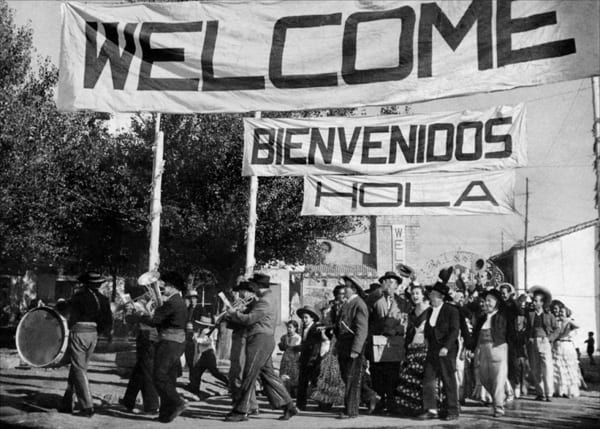
IF you’re not a Spanish national but want to live in the country for more than 90 days a year, the law requires you to become resident, something that, depending on where you’re from, can have more cons than pros.
According to the National Statistics Institute, Spain’s population was nearly 46.5 million in July 2014, over 4.9 million of whom were foreigners with a NIE. Romanians represent 19% of the total, followed by Moroccans (15.79%), while the British – ranked third, with just under 270,000 registered residents – account for just 5.5%, a far cry from the one million the UK government estimated lived in Spain in 2010.
In Andalucia, the percentage of foreigners is lower than the national average. By the Junta de Andalucía’s calculations, fewer than 730,000 of the 8,440,000 people registered on municipal censuses in the community at the end of 2013 were from outside Spain.
That could come as a surprise if you live in Nerja, where almost a third of its 23,500 residents are from abroad, although it’s still a long way from being Spain’s least Spanish town. In the 2011 census, more than 71% of the 22,000 people in Rojales in Alicante identified themselves as guiris.
It may be less of a shock to learn Spain’s residency rules are a little complicated. To find out why, we talked to lawyer, Blanca Loring. Blanca runs Loring International, a legal firm with offices in Marbella and Malaga that specialises in immigration, serving everyone from Russian and Chinese HNWIs to Filipino gardeners.
First of all, Blanca says, just as with ser and estar, there’s two ways to be a resident. There’s the padrón, the municipal census on which everyone who lives in Spain, national and foreigner alike, is required to register in the municipality where they habitually reside. And then there’s the central government, with whom foreigners are required to register if they spend more than 90 days a year in the country.
For now, Blanca notes, the Ministry of the Treasury and Public Administration (i.e. Hacienda), the Ministry of the Interior (i.e. the police), and the Ministry of Labour and Social Security (i.e. INEM) don’t talk much, let alone have access to municipal census data, but there is a chance that, one day, they could get their act together and start sharing information about those who appear on their lists.
Under Spanish law, if you spend over 183 days in Spain in a calendar year, most of your assets are in the country, or your partner and children under 18 live here for 183 days or more, you are presumed to be resident, unless you can prove the contrary, and have to declare, and pay tax on, worldwide income and assets.
Secondly, Blanca points out, some foreigners are more equal than others. EU and EEA (European Economic Area) citizens, and their families, have greater rights to reside in Spain than people from the rest of the world. But, wherever you’re from, if you put your name on the municipal census when you arrive and live in Spain, even illegally, for at least three years, before getting a job offer for a minimum of 12 months, you can become a resident through social ties, which is how many illegal immigrants who do domestic work become legal.
Since July 2012, however, revised residency requirements mean that even EU and EEA citizens who wish to stay in Spain for more than three months can be asked to prove they have health insurance (public or private) and sufficient financial means to support themselves.
In summary, Blanca admits, if you’re from Europe and have money, unless you pay high rates of tax at home, it’s probably not in your interest to be officially resident in Spain. You may save a little if you own or sell property here, but the costs likely outweigh the benefits.
If you’re from elsewhere, however, there’s more to be gained, whether you’re wealthy or not. For the idle rich, you might pay more tax, but at least your money’s secure and you can travel freely throughout the Schengen Area. For the rest of us, who still have to work for a living, access to Spain’s free public healthcare and education makes being a resident worthwhile, “as long as you have a job,” Blanca concludes.








